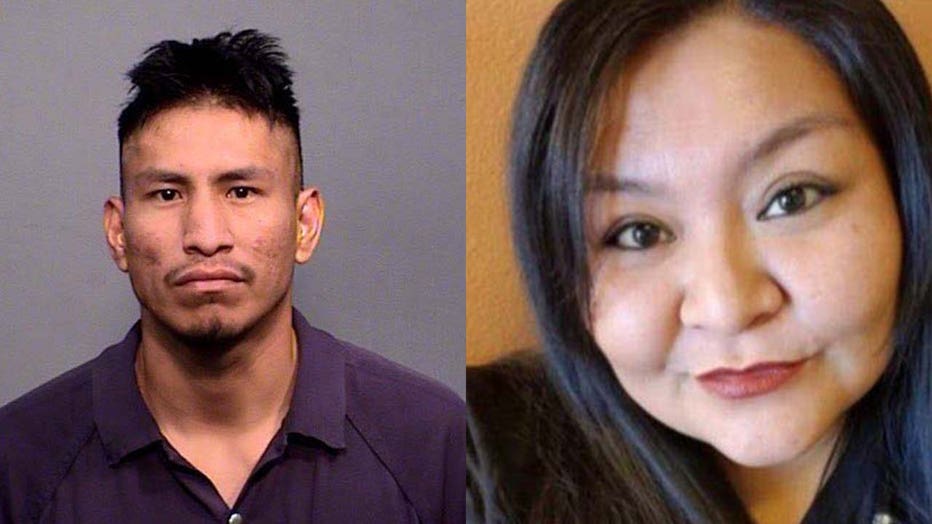Jamie Yazzie case: Boyfriend of a Navajo woman is sentenced to life in prison in her killing

Boyfriend of slain Navajo woman sentenced to life in prison
After family members of a slain Navajo woman described their grief in a federal courtroom, the judge on Monday sentenced her boyfriend to life imprisonment for first-degree murder in a case that became emblematic of what officials call an epidemic of missing and slain Indigenous women.
PHOENIX - PHOENIX (AP) — After family members of a slain Navajo woman described their grief in a federal courtroom, the judge on Monday sentenced her boyfriend to life imprisonment for first-degree murder in a case that became emblematic of what officials call an epidemic of missing and slain Indigenous women.
Five years after Jaime Yazzie was killed, her relatives and friends cheered as they streamed out of the downtown Phoenix courthouse after U.S. District Court Judge Douglas L. Rayas handed down the sentence for Tre C. James.
Yazzie was 32 and the mother of three sons when she went missing in the summer of 2019 from her community of Pinon on the Navajo Nation. Despite a high-profile search, her remains were not found until November 2021 on the neighboring Hopi reservation in northeastern Arizona.
James was convicted last fall in Yazzie’s fatal shooting. The jury also found James guilty of several acts of domestic violence committed against three former dating partners.
Yazzie’s three sons, now ages 18, 14, 10, and other relatives attended Monday’s sentencing, along with several dozen supporters. Another dozen or so supporters stayed outside to demonstrate on the sidewalk, chanting and beating drums.
"There is no sentence you can impose that will balance the scale," Yazzie’s mother, Ethelene Denny, told the judge before the announcement. Denny detailed the pain the family has suffered from the moment Yazzie disappeared, through a desperate 2 1/2-year search and the ultimate shock and heartbreak when her remains were found.
Federal prosecutors also played an earlier recorded video statement from Yazzie’s father, James Yazzie, who has since died.

Tre James (left) Jamie Lynnette Yazzie (right)
"It’s not right," the elder Yazzie said in the video, who was clearly ailing and had trouble speaking. "Taking my daughter away and taking my grandkids’ mom. It hits me right in the heart."
"Today’s sentence underscores the fact that Jamie Yazzie was not forgotten by the FBI or our federal and tribal partners," FBI Phoenix Special Agent in Charge Jose A. Perez said in a statement. "Our office is committed to addressing the violence that Native American communities in Arizona face every day and we will continue our efforts to protect families, help victims and ensure that justice is served in each case we pursue."
Yazzie’s case gained attention through the Missing and Murdered Indigenous Women grassroots movement that draws attention to widespread violence against Indigenous women and girls in the United States and Canada.
The U.S. Interior Department’s Bureau of Indian Affairs characterizes the violence against Indigenous women as a crisis.
Women from Native American and Alaska Native communities have long suffered from high rates of assault, abduction and murder. A 2016 study by the National Institute of Justice found that more than four in five American Indian and Alaska Native women — 84% — have experienced violence in their lifetimes, including 56% who have been victimized by sexual violence.


